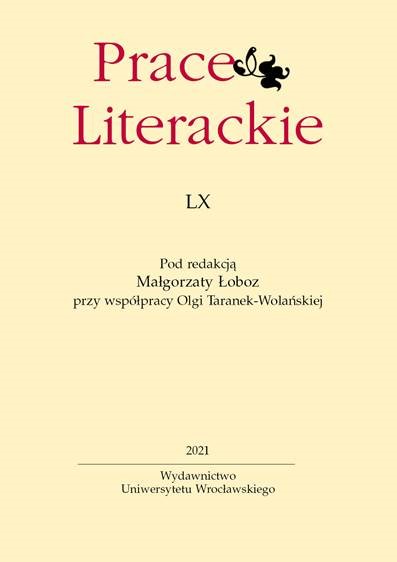Robak i robactwo w twórczości Władysława Syrokomli
Worms and insects in the works of Władysław Syrokomla
Author(s): Grzegorz IglińskiSubject(s): Language and Literature Studies, Sociology of Literature
Published by: Wydawnictwo Uniwersytetu Wrocławskiego
Keywords: poetry; Romanticism; insect; worm; vermin
Summary/Abstract: The aim of this article is to determine the frequency of occurrence of the terms “worm” and “insects” in the works of Władysław Syrokomla. An assumption is made that these themes have an important function in the poet’s works, and that their occurrence indicates something of significance. The article considers both the functionality and repeatability criteria, which is the necessary foundation for recording these items. The conducted analyses indicate that Syrokomla’s insects (regardless of whether they have a literal or metaphorical meaning) in most cases signal something evil. Sometimes it is an ordinary pest (insect) damaging plants, but more frequently the insect refers to the human condition, characterising it in three dimensions: as the worm of death, as the worm of internal suffering or as the worm of insignificance. In other cases, worms or insects represent curses or sin. The diversity of how such zoomorphic connotations are presented and applied deserves attention. Moreover, although the majority of them have long-established cultural and literary traditions, in Syrokomla’s works they gain a new context (for example, historical, folk or social). They indicate sensitivity to injustice and evil. The poet frequently presents the human world by analogy to the world of nature.
Journal: Prace Literackie
- Issue Year: 60/2021
- Issue No: 1
- Page Range: 5-26
- Page Count: 22
- Language: Polish

